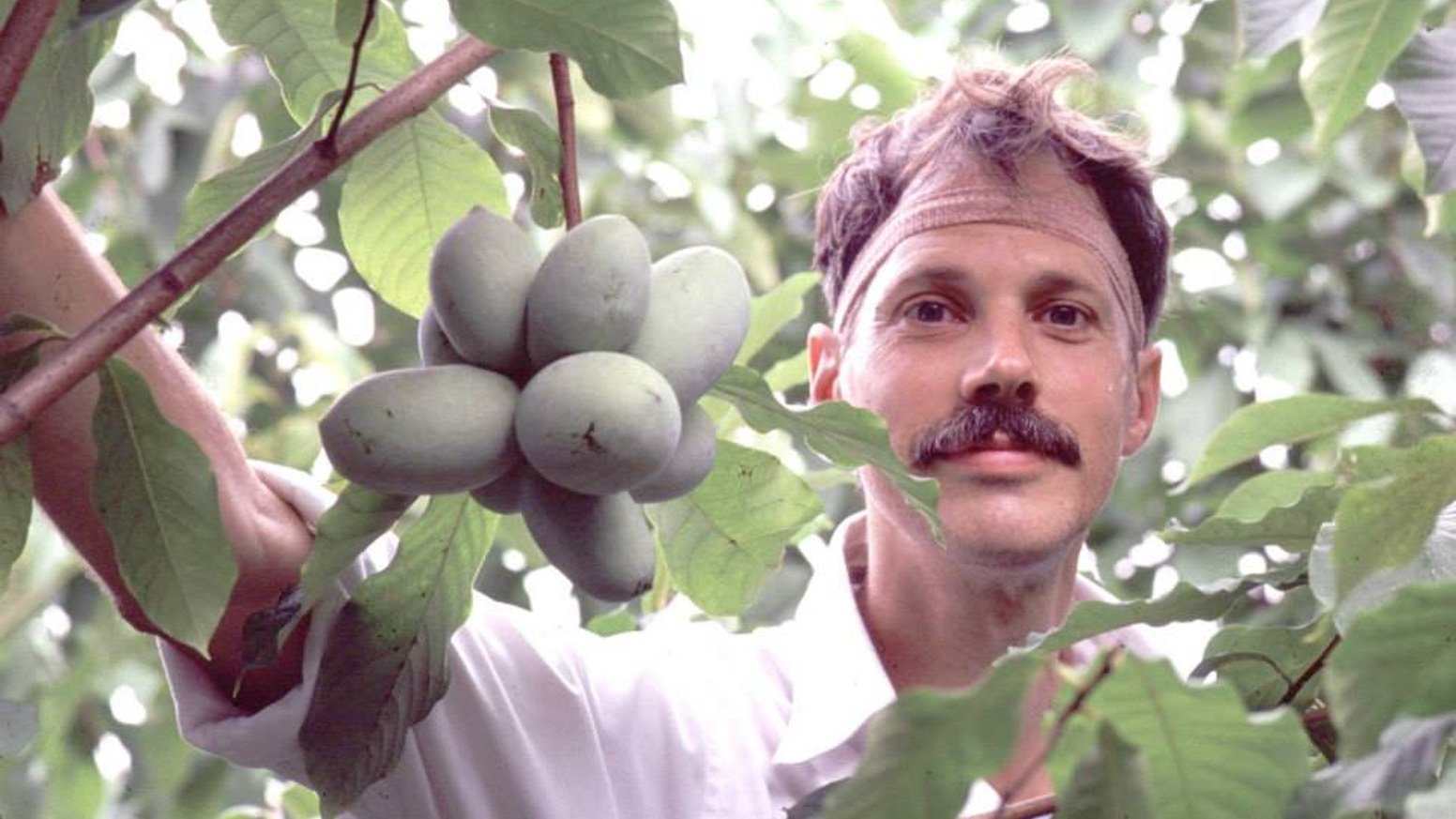Episode 2 - Fruit Love Letters
The Native Fruit Worth Remembering
“A perfume so intense it confuses the senses.”
One of North America’s least-known native fruits, the pawpaw deserves a stage of its own. Jessamine chats with historian, writer and citizen of the Choctaw Nation, Devon Mihesuah. Having grown up eating pawpaws, Devon wants pawpaw fruits to be available to Indigenous communities for years to come. To explore a pathway to pawpaw preservation through cultivation, Jessamine speaks with Neal Peterson, a plant geneticist who has spent the last 45 years creating pawpaws for the future.
In this episode of Fruit Love Letters, Jessamine chats with:
Devon Mihesuah, an enrolled citizen of the Choctaw Nation, a historian and writer, and the Cora Lee Beers Price Professor at the University of Kansas
Neal Peterson, a breeder cultivating wild pawpaw for interested growers
Episode highlights:
Characteristics of Pawpaw
Devon Mihesuah discusses the flavor profile of the wild pawpaw leading up to peak ripeness, as well as her past connection to pawpaws growing up in Muskogee, Oklahoma and her present day relationship with them.
How to Eat Pawpaws
Devon recounts finding wild pawpaw trees and eating them raw during days out and creating a pawpaw sorbet
Pawpaws in Choctaw Diet
Pawpaw is called umbi, and has a shelf life of a few days, so tribe members typically eat these fruits as soon as they are ripe
Devon discusses traditional indigenous knowledge and how they understand the environment they live in.
Devon theorizes that pawpaws aren’t featured much in tribal foodways documents because most information comes from non-native explorers who aren’t familiar with it.
Passing down the knowledge of this fruit protects the traditional ways of eating and reconnecting to their culture.
Foraging for Pawpaws
Foraging for pawpaws is more difficult due to access, polluted waters, and environmental concerns, such as spring freeze that prevents development of the fruit.
Devon reflects on how many pawpaws are on private property which prevents possible foraging
In recent years pawpaw have become a commodity, so now the locations of wild pawpaw trees are being guarded
Indigenous Food Sovereignty
Tribes have the right to control all aspects of economics and landbase, and Devon states that growing pawpaw trees on tribal property to maintain links to traditional foodways
Devon discusses obtaining and planting her own pawpaw seeds and the important, long process of maintaining the plants
Cultivating Wild Pawpaws
Neal recounts his first experience with pawpaw trees as a teen in West Virginia, and tasting them years later in graduate school
Neal researched any attempts of past pawpaw breeding and findings of desired characteristics of ideal pawpaws
Because plant breeding takes several years, Neal searched for previous collections of pawpaw trees so as to not start from scratch. His two year search led him to an experimental farm in Winchester, Virginia with a successful batch of trees to begin his breeding by collecting their fruit and germinating seeds.
Taking note of aroma, sweetness, bitterness, sulfur, texture throughout the years, Neal names the superior cultivars of pawpaw after rivers that surround the native land in which they originate.
Future of Pawpaw
Neal ends the episode stating that the interest for pawpaws is rising and will continue to rise, and there are a growing number of nurseries that now have pawpaw cultivars.
Guests
-

Devin Mihesuah
Devon Mihesuah is the Cora Lee Beers Price Teaching Professor in International Cultural Understanding. She holds a Ph.D. in American History from Texas Christian University.
Her career has been devoted to the empowerment and well-being of indigenous peoples. She served as Editor of the American Indian Quarterly for nine years. Her research, writing and speaking focuses on decolonization strategies and is one of the few indigenous writers who successfully writes non-fiction and fiction.
She regularly speaks nationally and internationally about issues pertaining to empowerment of indigenous peoples; her works are cited and reprinted in hundreds of publications and her books and essays are used in classrooms across the world.
-

Neal Peterson
In 1975, while he was studying for his master’s degree in plant genetics at West Virginia University, Neal Peterson tasted his first pawpaw.
He had known pawpaw trees all his life – they grew in the woods behind his boyhood home in southern West Virginia, and he was always in the woods as a teenager. He admired the tree for their tropical-looking foliage and their curious wine-colored flowers. But for reasons forgotten to him, he had never tasted the fruit. Until then. “How come something that tastes this good has never been domesticated?”, he asked himself. “Why is it not being cultivated and sold in grocery stores?”
It tasted much better than cattail pollen and Jack-in-the-pulpit root, things his friend Nick Fedorko had prepared for him. This was not merely survival fare. This was a delicacy!
And with that the germ of an idea was planted in Neal’s brain that grew in time, and eventually became the saga of his life.
